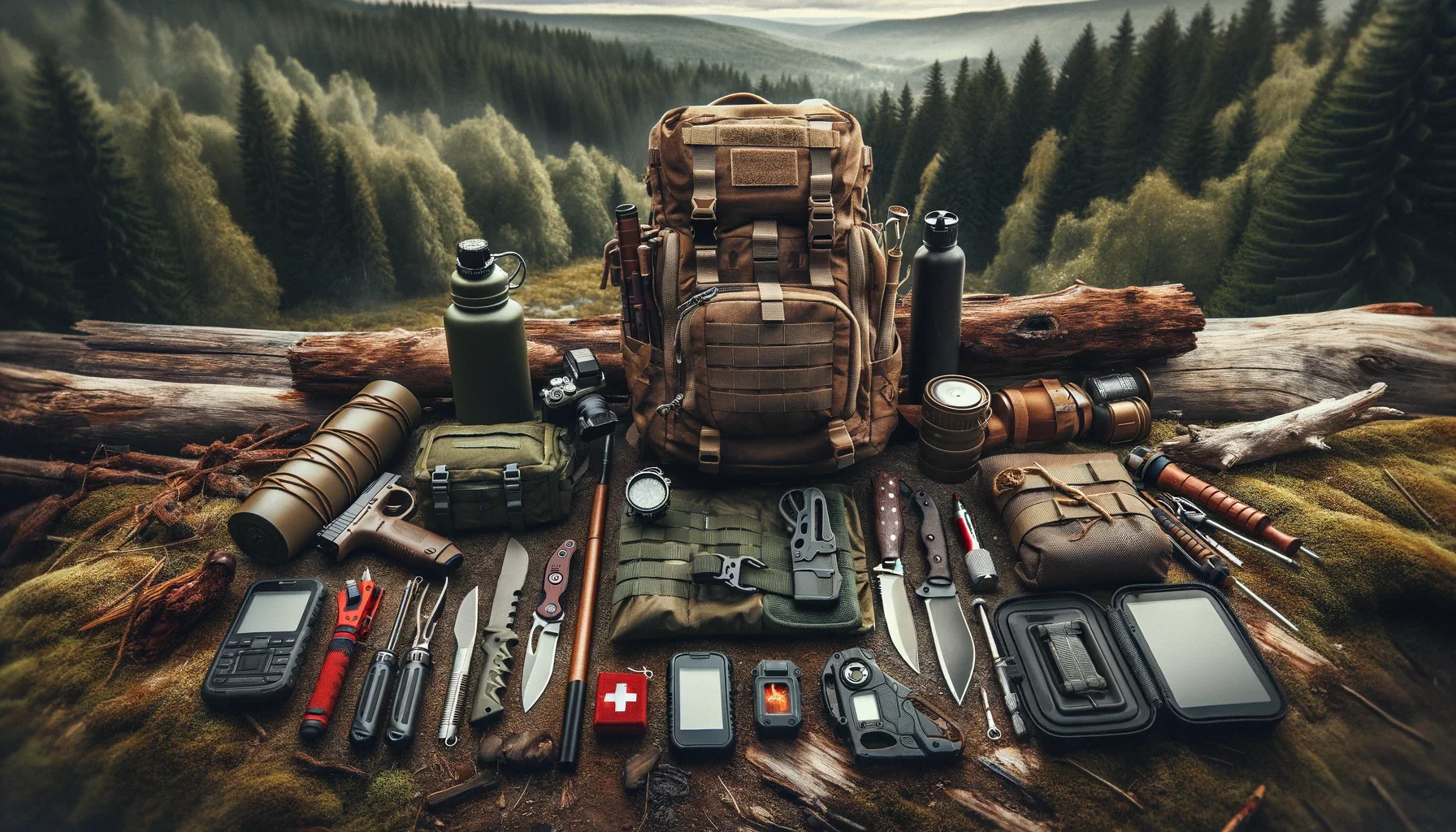
Embarking on a serious hunting endeavor is more than a pastime; it’s a journey into the heart of the wilderness, where preparation, skill, and the right gear can make the difference between success and failure, safety and danger. This comprehensive guide delves into the essential survival gear needed for these adventures, ensuring you’re well-equipped to handle whatever the wild throws your way. From choosing the right backpack to navigating with GPS, we cover it all.
Table of Contents
The foundation of your survival gear, a durable, well-designed backpack is crucial. Look for one with enough capacity to carry your essentials but not so large that it becomes a burden.
able food items such as energy bars, nuts, and dried fruits are vital for maintaining energy levels.
A compact but comprehensive first aid kit should include bandages, antiseptic, pain relievers, and any personal medications.
Select moisture-wicking base layers, insulating layers for warmth, and waterproof outer layers. Proper footwear, gloves, and hats are also crucial.
Your choice of weapon should be accompanied by necessary ammunition and maintenance tools. Include a high-quality hunting knife for multiple purposes.
In areas with poor cell service, consider carrying a satellite phone or a two-way radio.
Other essentials include sunglasses, sunscreen, insect repellent, a whistle for emergencies, and a headlamp or flashlight with extra batteries.
, including how to treat cuts, sprains, and other common injuries, is essential.
Q: How much should my survival gear weigh?
A: Your gear’s total weight depends on the length of your trip and personal needs. A general guideline is that your loaded backpack shouldn’t exceed 20% of your body weight for comfort and safety. However, this can vary based on individual strength and experience.
Q: Is it necessary to carry a GPS if I’m good with a map and compass?
A: While traditional navigation skills are invaluable, a GPS adds an extra layer of safety, especially in unfamiliar or challenging terrain. It’s wise to carry both and know how to use them effectively.
Q: How do I choose the right sleeping bag for different hunting seasons?
A: Consider the temperature rating of the sleeping bag, ensuring it matches the lowest temperatures you expect to encounter. For versatility, consider a three-season bag and adjust warmth with your clothing layers.
Q: What are some essential items often overlooked in a hunting survival kit?
A: Often overlooked but crucial items include a signal mirror, emergency blanket, duct tape, multi-tool, and extra food and water beyond what you plan to consume.
Q: How do I ensure my water source is safe to drink?
A: Even if water looks clean, it’s essential to purify it using a filter, purification tablets, or boiling. Avoid water from sources near human activity or stagnant water.
Q: Can you suggest a way to efficiently pack a hunting backpack?
A: Place heavy items close to your back and centered, distribute the weight evenly on both sides, keep frequently used items within easy reach, and use external straps for bulky items.
Choosing the best tree stands under $300 is one of the smartest investments a hunter…
When dark clouds roll in and rain starts falling, many hunters pack up their gear…
Competitive shooting requires skill, precision, and the right equipment. Whether you're a seasoned competitor or…
The world of archery is undergoing an exciting evolution. What once were purely mechanical tools…
Welcome to the latest 2025 hunting-season guide, tailored for readers of TheShootingGears. Whether you’re carving…
Technology is revolutionizing the way we hunt and shoot. From GPS mapping and ballistics calculators…
This website uses cookies.